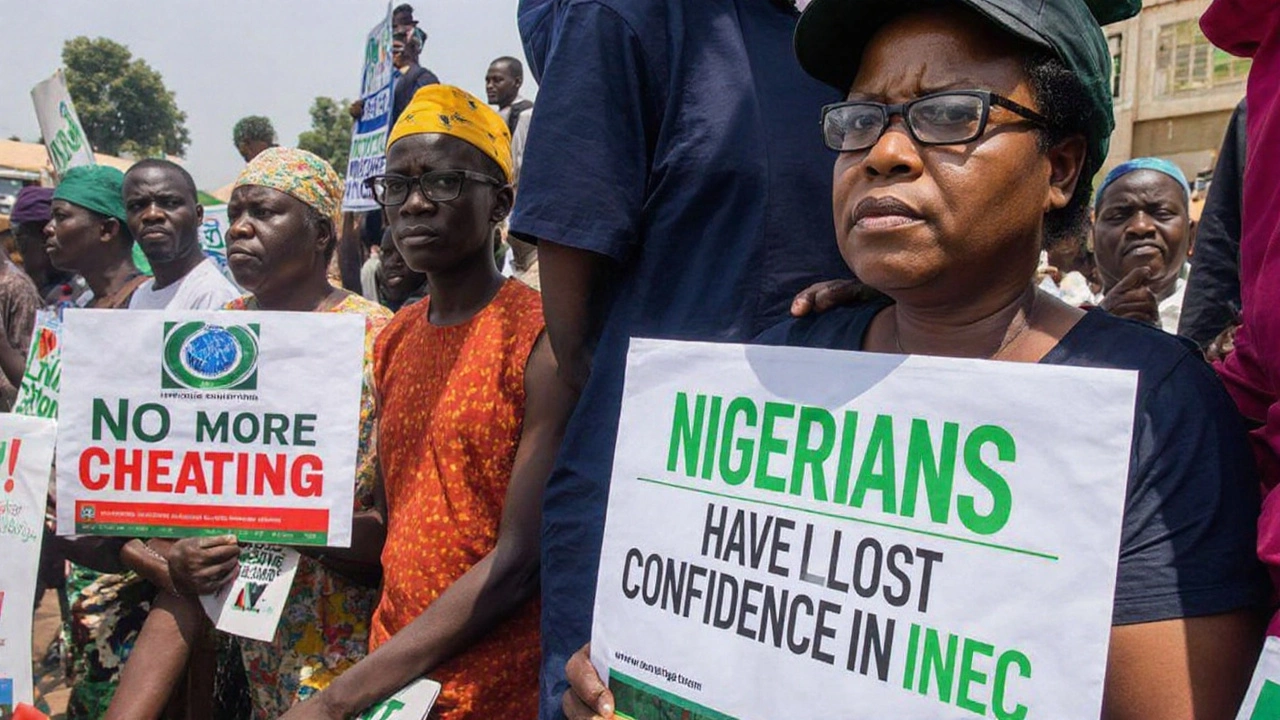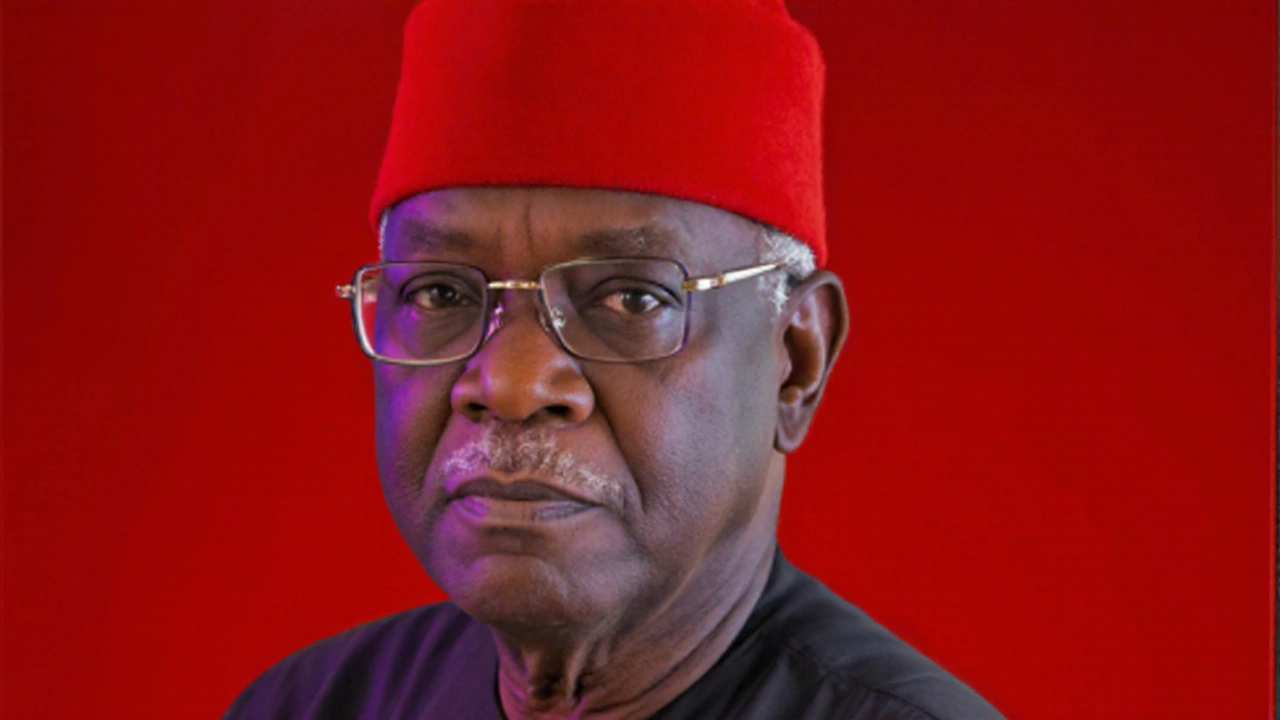Why the INEC Chairman Matters Now More Than Ever
When Professor Mahmood Yakubu first walked into INEC’s headquarters in October 2015, few could have imagined that his decade‑long tenure would become a benchmark for the commission’s stability. He is the first chair to complete two full terms since INEC’s creation, and his impending exit marks an inflection point for Nigeria’s democracy.
At stake is not just a job change; it is the credibility of a body that certifies the winner of every federal, state, and local election. The next chair will inherit a commission grappling with public skepticism, a backlog of reforms, and a ticking clock – less than 18 months before Nigerians head to the polls in 2027.
President Bola Tinubu’s expected re‑election bid adds another layer of pressure. A chair perceived as independent can lift the overall confidence in the electoral process, whereas a partisan appointment risks fueling accusations of manipulation, which could ignite protests and legal challenges.
Since 2015, every INEC appointment has drawn fire for its perceived political leanings. Civil‑society groups such as Yiaga Africa have warned that the 2027 elections could become the most compromised in recent memory if the appointment process remains opaque.
- Historical precedent: No previous chairman has served two terms, making Yakubu’s departure unprecedented.
- Institutional turnover: Five national commissioners will retire in 2026, another five will leave just before the 2027 vote.
- Political stakes: Tinubu’s potential re‑run hinges on a commission seen as neutral.
- Public trust: Surveys show declining confidence in INEC’s impartiality, hovering around 40%.

The Road Ahead: Challenges and Opportunities
Stakeholders across the political spectrum agree on three non‑negotiables for the next chair: integrity, technical competence, and a firm commitment to democratic norms. Translating those ideals into reality, however, is a complex task.
First, the appointment mechanism itself needs reform. Critics argue that the current practice—where the president nominates a candidate subject only to Senate confirmation—leaves too much room for behind‑the‑scenes lobbying. Proposals include a bipartisan selection committee, public hearings, and a clear set of merit criteria.
Second, the incoming leadership will have a narrow window to roll out critical reforms: electronic transmission of results, voter‑card verification upgrades, and better training for poll officials. Experts estimate that each reform requires at least six months of planning and pilot testing—a timeline that compresses sharply given the 2027 deadline.
Third, the new chairman must navigate lingering political interference. Recent reports link former Delta State Governor James Ibori, convicted in the UK for financial crimes, to efforts aimed at steering the appointment in favour of loyalists. Whether such influence can be curbed remains an open question.
Finally, the broader institutional environment cannot be ignored. Nigeria’s electoral system operates in a context of weak checks and balances, zero‑sum politics, and a history of contested outcomes. The transition period is therefore a prime target for attempts at institutional capture.
To counter these risks, a coalition of NGOs, academic experts, and business leaders has drafted a “Transparent INEC Appointment Charter.” The charter outlines steps such as:
- Publishing a shortlist of candidates with detailed résumés.
- Holding public forums where civil society can question nominees.
- Requiring an independent ethics review to screen for conflicts of interest.
- Mandating a minimum 12‑month overlap between outgoing and incoming chairs to preserve institutional memory.
If adopted, these measures could raise the bar for integrity and give the new chair a stronger foundation to command respect from political parties, the media, and voters.
All eyes will be on the Senate’s confirmation hearings later this year. The tenor of those sessions—whether they become a platform for rigorous scrutiny or a rubber‑stamp exercise—will likely set the tone for the entire 2027 electoral cycle.
In the meantime, grassroots movements are mobilising to keep the issue in the public eye. Town‑hall meetings, social‑media campaigns, and voter‑education drives are reminding Nigerians that the health of their democracy starts with who sits at the helm of INEC.
As the clock ticks down, the upcoming leadership change is shaping up to be more than a routine bureaucratic shuffle. It is a litmus test for Nigeria’s commitment to free, fair, and credible elections—a test that will reverberate well beyond the 2027 ballot box.

9 Responses
The chair’s independence will set the tone for 2027 elections.
I think a transparent process will boost voter confidence and help keep the peace.
Ensuring the appointment mechanism incorporates merit‑based criteria could mitigate partisan bias and strengthen institutional credibility.
We cannot let partisan puppets hijack INEC; the nation deserves a chair who respects democratic principles.
The upcoming governance architecture demands a chair fluent in electoral integrity frameworks, data‑driven logistics, and stakeholder engagement to modernize the commission.
The upcoming INEC chair selection is more than a routine administrative shuffle, it is a pivotal moment for Nigeria’s democratic trajectory. A chair who can navigate the delicate balance between political pressures and institutional autonomy will be essential for credible 2027 elections. Stakeholders have identified three non‑negotiables – integrity, technical competence, and a steadfast commitment to democratic norms – and these must be baked into the selection criteria. Current appointment mechanisms, which rely heavily on presidential nomination and Senate confirmation, leave ample room for behind‑the‑scenes lobbying. Introducing a bipartisan selection committee with public hearings could shine a light on candidates’ qualifications and reduce opaque maneuvering. Publishing a shortlist of nominees complete with detailed résumés would give civil society and the electorate the information needed to hold the process accountable. An independent ethics review could screen for conflicts of interest, especially given past allegations of interference from powerful political figures. Implementing a mandatory twelve‑month overlap between outgoing and incoming chairs would preserve institutional memory and smooth the transition. Technical reforms such as electronic transmission of results and upgraded voter‑card verification systems require at least six months of planning and pilot testing. Without sufficient lead‑time these innovations risk being rushed, potentially compromising the very integrity they aim to bolster. The broader governance environment, marked by weak checks and balances, makes the appointment process a strategic battleground for democratic resilience. A transparent charter, co‑authored by NGOs, academics, and business leaders, offers a roadmap for elevating the credibility of the new chair. If the Senate takes the confirmation hearings seriously, it could set a positive tone for the entire election cycle. Conversely, a rubber‑stamp approach would signal a retreat from reform and could embolden attempts at institutional capture. Therefore, every stakeholder-from grassroots activists to international observers-must keep the pressure on to ensure the next INEC chair stands as a guardian of free and fair elections.
Great points! The idea of public hearings really resonates – it would let citizens see who’s actually shaping our vote.
I agree that transparency can build trust, and the overlap period seems like a smart way to keep institutional knowledge alive.
Fact check: many countries already use independent panels for election commissions 🧐👍